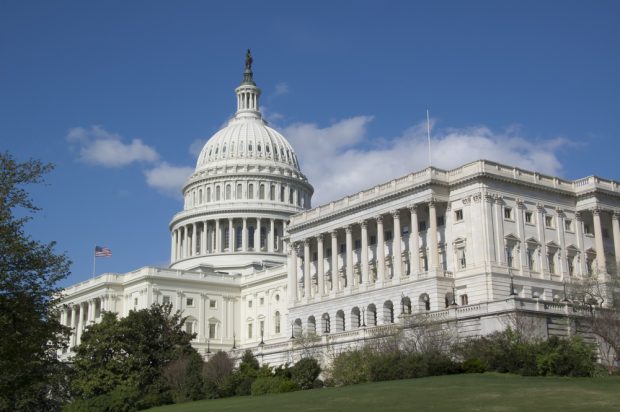 The U.S. Capitol Building.
The U.S. Capitol Building.
For a decade, credit unions have been fighting back against the onslaught of burdensome regulations that came in the wake of the 2008 financial crisis. In these past 10 years, we've seen unprecedented consolidation in our industry as smaller institutions couldn't operate with so many compliance costs. But now we're turning the tide – the most comprehensive regulatory relief package since the Dodd-Frank Act was enacted last month.
The Economic Growth, Regulatory Relief and Consumer Protection Act (S. 2155) didn't just happen overnight. Even though it only took a few seconds for the president to sign it into law, this package is the culmination of years of effort by various stakeholders, of hundreds of meetings on Capitol Hill and phone calls with key lawmakers, of thousands of messages sent by credit unions and those most acutely impacted by restrictions on financial services.
Recommended For You
What this legislative win demonstrates is how effective advocacy efforts can be, but also how dedicated organizations and their members need to be to their advocacy efforts. And it's not the first time credit unions have proven they're a force to be reckoned with in Washington.
NAFCU was started more than 50 years ago because our founders recognized the changing national economy and the necessity of laws that would allow credit unions to compete with banks and other financial institutions. We have long been credit unions' Washington watchdog, and we take our jobs seriously.
Over these past five decades, credit unions have seen plenty of change and uncertainty when it comes to politics, the economy, regulations and advancements in technology. NAFCU has worked to provide the credit union industry with the best federal advocacy throughout all this and has been able to do so successfully, primarily because of credit unions' own commitment to our efforts.
Even as Washington's landscape has changed, credit unions haven't shied away from their Congress-given mission to promote thrift and provide access to credit for provident purposes. Even as banks have overlooked rural and low-income communities, credit unions have been there to fill the void offering safe, affordable financial services and products to Americans in need.
That's why lawmakers and regulators are willing to meet with credit unions: We seek out opportunities that will allow us to better serve the 111 million Americans and counting. Within the past year, credit unions have been able to share their concerns and priorities with President Donald Trump, Treasury Secretary Steven Mnuchin, CFPB Acting Director Mick Mulvaney, Federal Communications Commission Director Ajit Pai and Small Business Administration Administrator Linda McMahon, just to name a few.
As a direct result of our industry's advocacy efforts and relationships, we have been successful at protecting the credit union federal tax exemption throughout tax reform efforts, getting more clarity on autodialer restrictions to ensure credit unions can contact their members about important financial information and increasing credit unions' participation in programs that provide small business loans.
Our work with lawmakers on both sides of the aisle have led to big victories, too, like keeping the NCUA out of the congressional appropriations process and funding programs that help low-income, first-time home buyers obtain mortgages.
Credit unions have suffered some setbacks in recent months related to efforts to modernize field of membership rules and unclear standards for website accessibility under the Americans with Disabilities Act. But when times get tough and the outcome is uncertain, that's when we dig in, take tough stances and fight back.
Advocacy isn't only about getting those high-profile meetings. Once we're in the room, messaging and proof points are critical. Credit unions each serve a unique group of members and each institution has implemented services and offered products to meet their members' needs. When we're meeting with key legislators and regulators, it's critical that we have stories from their constituents that demonstrate how a law or regulation is impacting local communities.
It's also important that we look ahead and anticipate how technological advancements are going to influence the way consumers interact with – and what they expect from – their financial institution. Credit unions have been leaders in adopting new technologies including ATM machines and mobile banking. As Congress and federal regulators try to regulate new developments, we need to have a seat at the table to ensure credit unions can continue to provide these services to their members.
While there is certainly more work to be done to create a regulatory environment that allows credit unions to thrive, our advocacy efforts have proven that we will not sit on the sidelines and let others have more influence over decision makers or outcomes.
Advocacy never stops, whether it's after we're dealt a win or a loss. Although credit unions' tax status was preserved in tax overhaul legislation – thanks to consistent outreach by credit unions and proof of its benefits – banks and others continue to attack it. The ever-changing political environment means we won't let down our guard even after a victory seems guaranteed.
The credit union industry continues to boast the same cooperative spirit and willingness to face challenges head on now as the first credit union did when it started in the U.S. in the early 1900s. That's why the industry is able to grow even as times change – NAFCU's Annual Conference this week will provide strategic planning insights to help ensure credit unions have all the tools needed to continue doing this.
Time and time again, credit unions have proven their resiliency during shifting political and economic environments and come out on top. We've accomplished so much through our work together, and staying committed to advocacy will lead to even better legislative and regulatory outlooks. Credit unions are proof it's a winning strategy.
 B. Dan Berger
B. Dan Berger B. Dan Berger is President/CEO of NAFCU. He can be reached at 703-522-4770 or [email protected].
© Touchpoint Markets, All Rights Reserved. Request academic re-use from www.copyright.com. All other uses, submit a request to [email protected]. For more inforrmation visit Asset & Logo Licensing.






